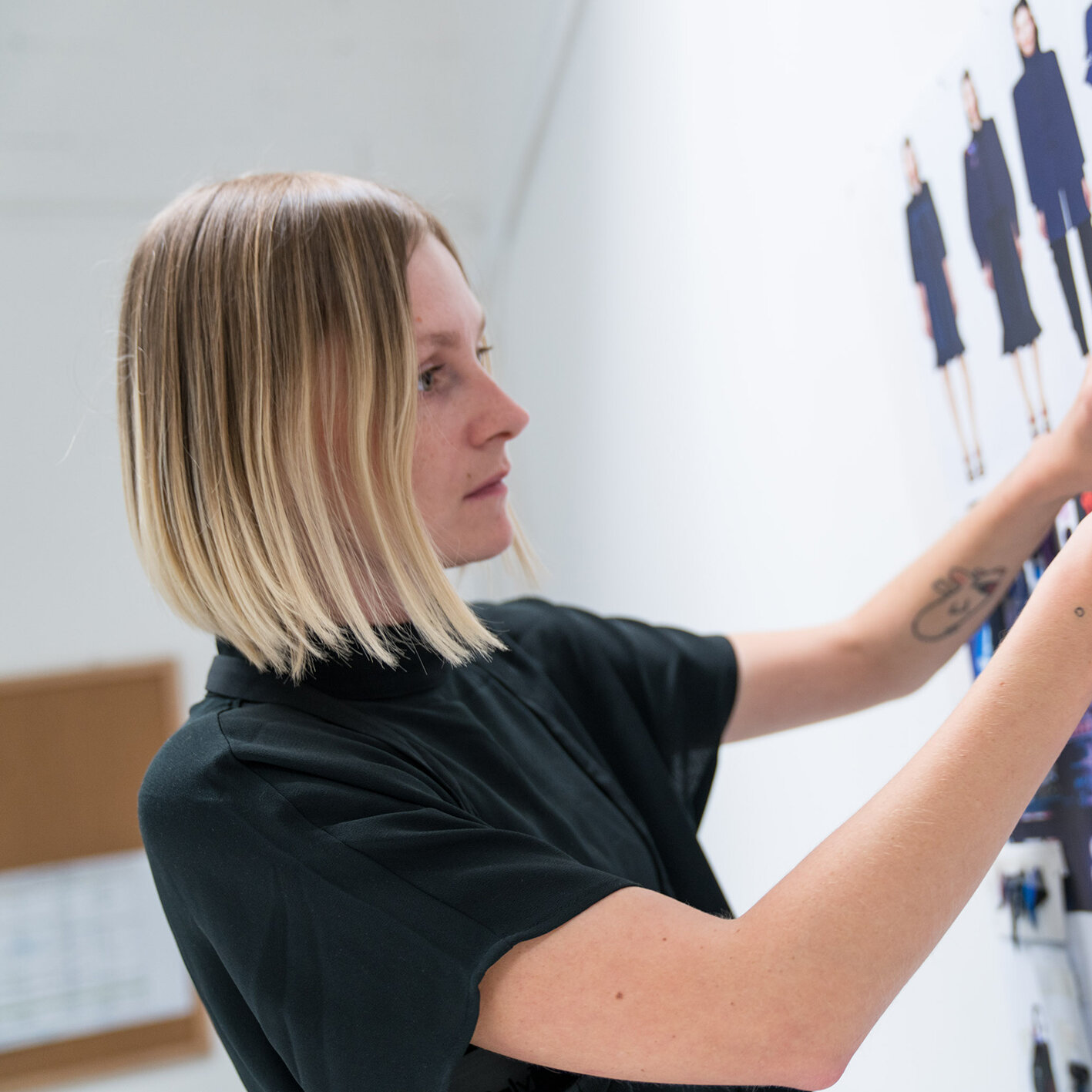A Breakthrough in Traceability for Up-cycling
Redress Founder, Christina Dean (also the Founder of up-cycling brand, The R Collective) shares news of a groundbreaking new verification system to add critical transparency to the practice of up-cycling.
Circular fashion has long been touted as a solution to fashion’s many layers of crisis - from environmental, economic to social. On paper, creating a circular fashion system offers the nirvana of decoupling fashion’s need for economic growth with its need to be more sustainable. But despite much talk of circular fashion, we have a long way to go to making this a reality. Just 9% of the global economy is circular*. When it comes to fashion, less than 1% of clothes are recycled back into fashion and around USD500 billion is lost annually to the global economy through the lack of recycling and clothing under-utilisation**. Meaning that, for now, this ‘circular fashion’ fantasy does live mainly on paper - and not in practice.
However, set against a rather pessimistic backdrop, there is indeed some good news. Whilst COVID-19 has created catastrophic impacts, so too has it brought new ideals, with 71% of consumers indicating a shift towards investments in higher quality garments and a deepened interest in circular business models***.
Moving forwards and in light of our growing population, high demands for scarce natural resources and a growing ugly waste crisis that is under the spotlight, the fashion industry needs to urgently aim for the moon and unlock the many components - from design, logistics, technology, recycling and increased collaboration - to stamp out waste and ignite the possibilities of the circular fashion economy.
Not only must there be a change in supply chain practices, but perception as well. Yesterday's ‘waste’ can be viewed in a new light as a resource or raw material input. When we view it as such then we are moving into the pathway for enabling circularity.
Up-cycling is not a new concept. However, it has never been a practice that has been tracked and validated. Setting up up-cycling schemes will facilitate brands, retailers and supply chains to move forward and has numerous benefits. Notably, to help bring what is still a largely cloudy practice of handling ‘waste’ materials into a traceable supply chain.
Enter the world’s first ‘Upcycling Verification Program’ from SGS, the leading inspection, verification, testing and certification company, launched in July 2020. Up-cycled start-up brand, The R Collective, which was borne from Redress’ work is the first brand globally to be issued the verification.
This up-cycling verification scheme allows us to lift the mystery of ‘waste’ and allows the supply chain to document the handling of excess materials at key checkpoints. The benefits of this are twofold - providing better industry practice whilst simultaneously spotlighting kinks in the customs chains between countries. These chains result, because of variable customs practices between textile countries, in the cheapest route for waste management being the worst - namely landfill or incineration. Leaning into the digital revolution will allow us to connect the dots with fashion’s excess to allow up-cycling to put waste back into our wardrobes.
The consumer demand for transparency and claims verification is only getting louder, alongside their growing appetite to sustainable fashion. At The R Collective, we have always held an ideal view that all waste is created equal. Therefore by bringing the up-cycling scheme into the new launch of the on demand Refashioned collection it brings up-cycling into the forefront of sustainable fashion and validates what we have been proving since inception.
From the retail side, we’re witnessing almost in real-time fashion’s waste crisis mounting, especially in recent months. We are increasingly called upon by our fashion industry partners in the supply chain to work with them on their excess. Through The R Collective brand, we can offer a viable and transparent ‘next-in-life’, as opposed to ‘end-of-life’ solution through our expertise in up-cycling, which is importantly backed with SGS’s up-cycling verification.
The R Collective designer and Redress Design Award 2015/16 winner, Pat Guzik shared, “Fashion has proven historically to be capable of reinvention. This is at the core of what drives creatives - the desire to respond and reflect the world through clothes. Refashioned is a calling from the next generation of designers, who want to collaborate to bring a new vision for fashion to wardrobes.”
Refashioned, The R Collective’s new 20-piece made-on-demand collection where various silhouettes can be customised in a range of rescued, up-cycled materials - is designed by Redress Design Award Alumni Pat Guzik (Poland), Seerat Virdi (India), Weiyu Hung (Taiwan), and Wen Pan (China). Explore the collection here.
* Circle Economy, The Circularity Gap Report 2019
** Ellen Macarthur Foundation (2017), A New Textiles Economy: Redesigning Fashion's Future
*** Global Fashion Agenda / BCG CEO Agenda Covid-19 Edition



